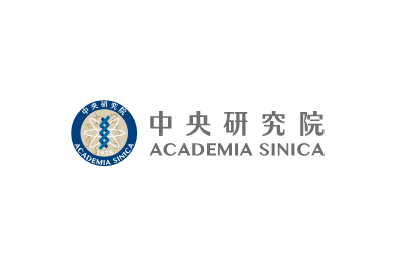- Symposiums and Conferences
- Institute of Ethnology
- Location
Conference Room 2319, 3F, New Wing, Inst. of Ethnology, Academia Sinica
- Speaker Name
Darren Byler, Rodolfo Maggio...etc.
- State
Definitive
- Url
緣起 About:
Anthropologists have conceptualized world order in multiple ways; as "empire," "world system," the "global," and more recently, the "planetary." These different ways of conceptualizing have reflected changing emphases in anthropological theory on power, agency, representation and/or ethics, but not only have they also reflected subaltern political and ethical commitments, but also the imprint of specific geopolitical circumstances. However, the contingent character of affinities and antagonisms may be unspoken, shaping assumptions, yet disavowed by reference to more encompassing categories like "empire" for describing the global condition. While these categories and their commitments have been most intelligible in the Euro-American centers of "global" theory, they become increasingly troubled and fraught in varied discussions about "global China". The rise of China in the world has provoked controversies over whether the tools developed to study and critique Euro-American hegemony can be extended to China, or whether these tools must be rethought completely. Underlying these controversies is not only the non-isomorphism of political, economic, and cultural hierarchies at different scales, but also complicated matters of the personal, political, and ethical commitments of researchers, interlocutors, and institutions in an increasingly fractured and imperiled world.
The premise of this conference is that doing ethnographic fieldwork in the tense fault lines around China's geopolitical edges and the sites of its rising global presence, may be productive for theorizing how imaginations of world order, in particular "empire," are experienced and articulated. The conference brings together anthropologists and ethnographers working in and around (global) China, from Xinjiang, Tibet, Hong Kong, Taiwan, and Okinawa, to Zambia, Tanzania, South Africa, and North America. The conference will reflect on how scholars think critically about relations, inequalities, hierarchies, violence, and political affect in the context of the geopolitics of knowledge production. If anthropologists embody a liminal or contradictory state of both inheriting and reproducing the coloniality of knowledge production while also identifying with or even embracing forms of anti-imperial ethics/politics, how does one employ critical vocabularies about "other people's empires" without reinforcing the discursive imperialism of area studies? Likewise, how does one develop critical reflexivity regarding one’s own imperial centers, and their conditions of possibility, without being recruited into discursive complicity with imperial projects elsewhere? Is all anti-imperial critique ultimately implicated in what Laura Doyle calls interimperiality? Are there alternatives? What is the relationship between theorizing political, economic, racialized, and gendered inequalities and the practice and affects of global affinities and antagonisms when the sense that economic and geopolitical hierarchies are shifting makes the isomorphism of hegemonies harder to assume? How do global processes, politics, and inequalities become visible or invisible as conceptual entities? How does one imagine the "world" in which they do ethnography?
Dedicated studies of empire have usually tended towards macro-level theorizing; from typologies of imperial types, to Marxist debates over measuring scales and vectors of global value transfer, to the philosophy of "All-under-heaven." While Catherine Lutz has called on anthropologists to study "empire in the details," this conference asks how empire is theorized from the details. We are particularly interested in everyday geopolitical theorizing. How do people, including academics, imagine world order? Laura Nader once famously made a distinction between ethnographers who "study down" (i.e. the marginal, the subaltern, the oppressed) and those who "study up" (i.e. the powerful, the oppressor). When one goes to study "global China", does one imagine themselves studying up, studying down, studying sideways, or what? Are concepts like "empire" "world order" or even Tianxia even useful? If not, why do people use them? What kinds of vernacular geopolitics does one encounter in fieldwork? How do ordinary people talk about geopolitics and world order? How do ethnographers studying a rising China navigate geopolitical tensions around the so-called "new cold war", in the field, different public spheres, academic spaces, the people who read our ethnographies, and especially among our research interlocuters? What resources does anthropology or ethnography offer, and what are the limitations?
The presentations and discussions will examine how "Global China," "Chinese Empire," and "US/Western empire" are conceptualized in diverse ethnographic sites, and the implications for how anthropologists conceptualize world order and navigate an increasingly fractured and imperiled world.
Organizer/Co-organiser:
Hosted by the Institute of Ethnology, Academia Sinica
Sponsored by the National Science and Technology Council
The maximum capacity for the venue is 40 people.
The option for online conference is also available in this registration.
However, your submission will be evaluated by the organizer.
There will be no on-site registration.
We will send registration confirmations via email on May 25th, 2023.
Please be aware of your mail inbox, and since it is an automated message generated by the registration system, it might go to your spam folder.
If you have not received any message before the conference starts, please feel free to contact us by email or phone (during regular working hours), thank you for your cooperation.









 Home
Home

